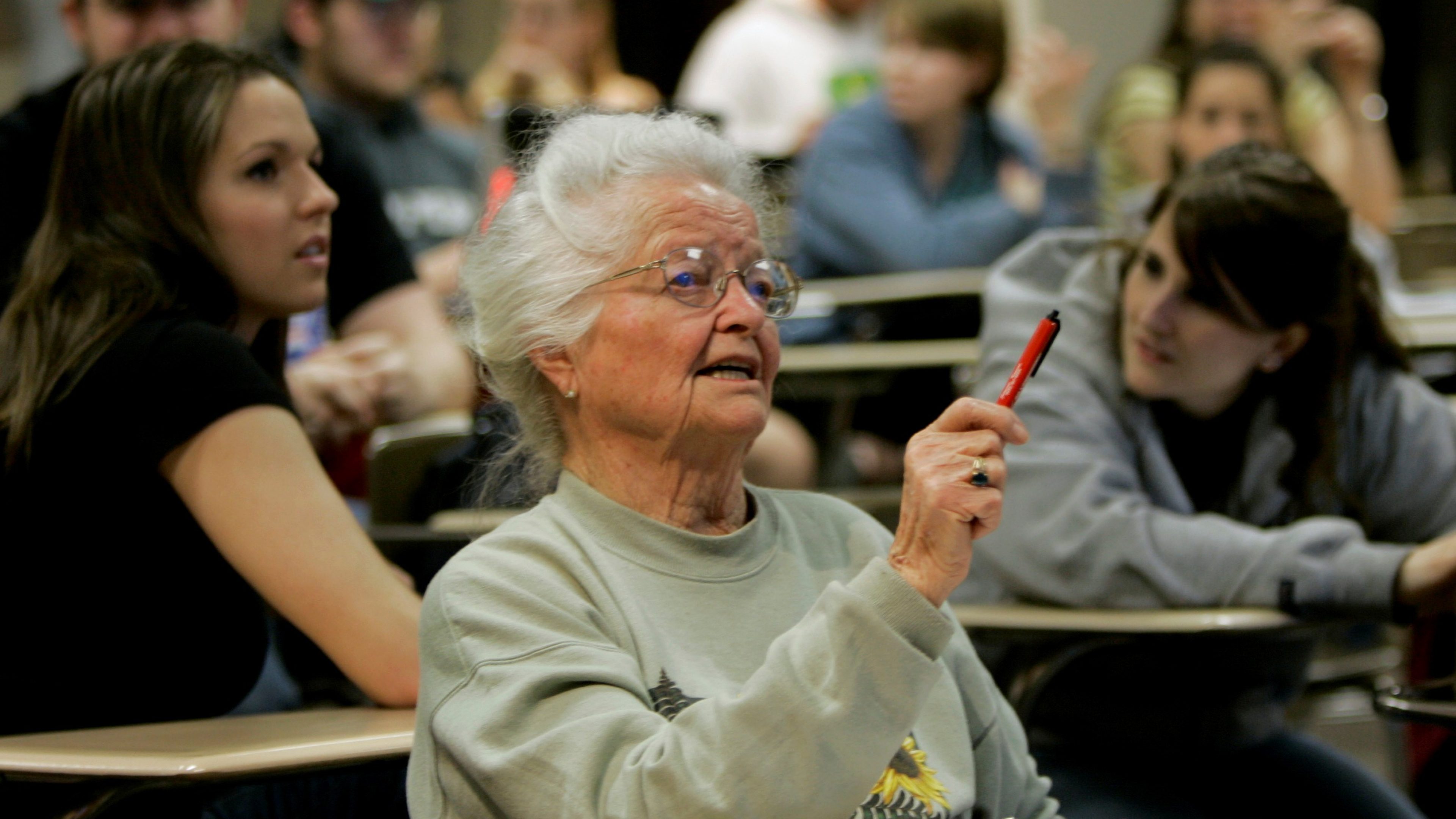Learning is not age-dependent. However, there's more to learning than crossword puzzles and Sudoku. If you want to stay sharp, you have to try new things says learning research specialist Christian Stamov Roßnagel.
People are becoming healthier and living longer. Can we also retain our learning ability for longer?
Only longevity studies can answer that conclusively. However, we already know that the brain's capacity is hugely underrated. Growing old does not prevent you from learning.
Do people not become progressively worse learners as they age?
I’m not saying that tomorrow's ninety-year-old will have the same cognitive ability as a thirty-year-old. Age does take its toll. However, it doesn’t really become an issue until the age of 70 at the earliest. Until then your ability to learn is practically the same as with younger people. Our research indicates the problem is actually that we stimulate the brain less the older we get because we are less willing to learn.
Why is that?
There are many reasons. For example, the older we get, the more we ask: what's in it for me? When we reach middle-age, our perspective starts to change: how much time can I spare? Is learning worth the investment? If it doesn't make sense from a financial or career perspective, I won't bother. Sometimes people also use it as an excuse to shield themselves from the unwelcome side-effects of a learning culture that favours the young.
How do you mean?
We always have to be quick on the uptake. If someone asks an extra question or needs some more practice, that person is viewed with suspicion or ridiculed. That's why a lot of people simply don't want to do that to themselves. A company survey revealed a man in his mid-fifties who opted not to take a computer training course at work, but who was diligently learning Excel in his spare time as he is the treasurer of a gymnastics club. When we asked why, he answered: I’m one of the younger members of the club, at work I’m one of the older ones - I look old there.
Do we underestimate older people?
Yes, there is a misconception in society that has become a self-fulfilling prophecy. If a 60-year-old can’t use a mobile app, you question their cognitive ability. If a 25-year-old has trouble with the same app, people will assume the app isn’t user friendly. We automatically attribute many things to age and older people internalise that stance.
So it isn't age but prejudices that affect our capacity for learning?
Yes, an inaccurate self-perception holds us back as we demonstrated in a study. We conducted learning experiments over ten years with a group of employees between the ages of 50 and 60 and showed them that they were just as capable of learning as their 30-year-old colleagues. The outcome was that, just a few months later, they performed as well as their younger colleagues in learning and motivation tests and their learning time was down by 20 percent. Meanwhile the motivation and learning aptitude of the older employees in a similar group was unchanged – evidently because they still believed they were slower learners than their younger counterparts.
How come parents are not as good as their children at combinatorial or arithmetic exercises, and the grandparents are worst of all.
As a general rule: the broader, more comprehensive and complicated the tasks are, the smaller the difference between young and old. Arithmetic is more of a micro process, which only requires a tiny subset of our brain's cognitive capacity. It depends more on reaction and processing time than prior knowledge and strategy; that’s where younger people have the advantage. When learning a new language, you’ll also find that younger people pick it up quicker than older students, although they don’t actually learn more. If an older person starts learning a new language, he or she will ultimately learn as much as a youngster.
To what extent can we train our cognitive ability?
According to test data, it is a mere formality to enable the average 60-year-old to enjoy the same aptitude for learning as the average 40-year-old. A study by the University of San Francisco has even shown that still more is possible: they were able to train a group of 60-to-85-year-olds to outperform the average 20-year-old in a challenging concentration exercise after just 12 hours of training over four weeks.
So all we need to do is a crossword or Sudoku to retain peak mental agility?
It’s not quite that simple. Unfortunately, the progress made from those exercises doesn’t transfer over to other areas, for example general concentration. The key to learning is not acting on automatic pilot. The most important thing is to keep trying, always learn new things and not to fall into a routine. That’s how you keep your brain sharp. The longer you stimulate your brain, the longer it will work. To coin a phrase “use it or lose it”.
And the salary is a self-determined, independent life in old age, which is what 91 percent of over-65-year-olds want according to a survey by Swiss Life?
Exactly. Mental agility is one of the three pillars of non-financial retirement provision, besides sport and a healthy diet. Lifelong learning is thus one of the best ways we can contribute to our retirement and it lies within our control.
So all we need to do is a crossword or Sudoku to retain peak mental agility?
It’s not quite that simple. Unfortunately, the progress made from those exercises doesn’t transfer over to other areas, for example general concentration. The key to learning is not acting on automatic pilot. The most important thing is to keep trying, always learn new things and not to fall into a routine. That’s how you keep your brain sharp. The longer you stimulate your brain, the longer it will work. To coin a phrase “use it or lose it”.
And the salary is a self-determined, independent life in old age, which is what 91 percent of over-65-year-olds want according to a survey by Swiss Life?
Exactly. Mental agility is one of the three pillars of non-financial retirement provision, besides sport and a healthy diet. Lifelong learning is thus one of the best ways we can contribute to our retirement and it lies within our control.

Christian Stamov Roßnagel
Professor for Organisational Psychology
Christian Stamov Roßnagel is Professor for Organisational Psychology at the "Center of Lifelong Learning and Institutional Development" of Jacobs University Bremen and author of the instructional book “Mythos: ‚alter‘ Mitarbeiter: Lernkompetenz jenseits der 40?” (The myth: can “old” employees still learn after 40?” (Beltz Verlag).
University of the third age
France takes the lead
A growing number of old people are studying at universities for the third age throughout Europe. It all started in France, where the role of continuing education was recognised as contributing to public health. The first university of the third age was founded in Toulouse in 1973 and now there are over 60 such institutions. In 1975, the first Swiss university of the third age opened its doors in Geneva (2013: 13), Germany followed suit in the early 1980s (2013: over 50). The European universities of the third age are included in the “Learning in Later Life” network. All the institutions are listed below by country:
1 "Video game training enhances cognitive control in older adults“. Gazzaley, A., University of San Francisco (2013).
www.nature.com/nature/journal/v501/n7465/full/nature12486.html#affil-auth
2 "Die Freiheit selbst zu bestimmen” (the freedom to decide for yourself) - a Swiss Life survey (2016).




